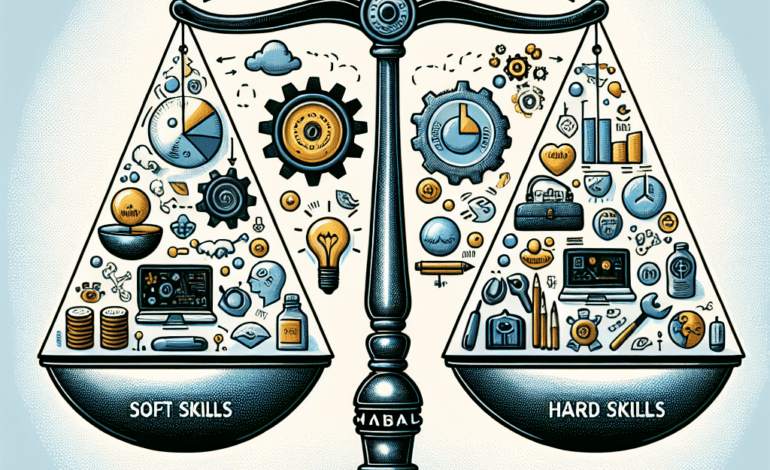Educational Goals That Pay Off: Investing in Your Future Success

Below is an HTML-formatted article about educational goals that pay off, with a table of content, a conclusion section, and an FAQs section.
<!DOCTYPE html>
<html lang="en">
<head>
<meta charset="UTF-8">
<meta name="viewport" content="width=device-width, initial-scale=1.0">
<title>Educational Goals That Pay Off: Investing in Your Future Success</title>
<style>
body {
font-family: Arial, sans-serif;
line-height: 1.6;
}
.container {
max-width: 800px;
margin: 0 auto;
padding: 20px;
}
h1, h2, h3 {
color: #2c3e50;
}
a {
color: #2980b9;
text-decoration: none;
}
a:hover {
text-decoration: underline;
}
table, th, td {
border: 1px solid #ccc;
padding: 8px;
border-collapse: collapse;
}
</style>
</head>
<body>
<div class="container">
<h1>Educational Goals That Pay Off: Investing in Your Future Success</h1>
<h2>Table of Content</h2>
<ul>
<li><a href="#introduction">Introduction</a></li>
<li><a href="#self-awareness-and-goal-setting">Self-Awareness and Goal Setting</a></li>
<li><a href="#academic-achievement">Academic Achievement</a></li>
<li><a href="#personal-development">Personal Development</a></li>
<li><a href="#career-readiness">Career Readiness</a></li>
<li><a href="#lifelong-learning">Lifelong Learning</a></li>
<li><a href="#conclusion">Conclusion</a></li>
<li><a href="#faqs">FAQs</a></li>
</ul>
<h2 id="introduction">Introduction</h2>
<p>In the fast-paced and ever-evolving world we live in, setting educational goals is more important than ever. Whether you're just starting your educational journey, looking to advance your career, or simply wanting to expand your knowledge, setting and achieving educational goals can open doors to a brighter future. In this article, we'll explore different types of educational goals and how they can contribute to your long-term success.</p>
<h2 id="self-awareness-and-goal-setting">Self-Awareness and Goal Setting</h2>
<p>Before you can set effective educational goals, you need to have a clear understanding of your strengths, weaknesses, interests, and values. Self-awareness is the cornerstone of goal setting. It allows you to choose goals that are meaningful and achievable, laying the foundation for personal and professional growth.</p>
<h2 id="academic-achievement">Academic Achievement</h2>
<p>One of the most straightforward educational goals is academic achievement. This involves setting targets for grades, coursework, and exams. By excelling academically, you not only gain in-depth knowledge of your subject but also develop a range of skills that are highly valued in the workplace.</p>
<h3>Strategies for Academic Success:</h3>
<ul>
<li><strong>Time Management:</strong> Allocate specific times for study and stick to them.</li>
<li><strong>Effective Note-Taking:</strong> Summarize key points and review them regularly.</li>
<li><strong>Active Participation:</strong> Engage in class discussions and seek help when needed.</li>
<li><strong>Resource Utilization:</strong> Take advantage of libraries, online courses, and study groups.</li>
</ul>
<h2 id="personal-development">Personal Development</h2>
<p>Beyond academics, personal development goals are equally important. These goals focus on enhancing your soft skills, such as communication, leadership, and critical thinking. Personal development also includes improving your mental and physical well-being, which are crucial for long-term success.</p>
<h3>Areas of Personal Development:</h3>
<ul>
<li><strong>Communication Skills:</strong> Join public speaking clubs, engage in debates, and practice writing.</li>
<li><strong>Leadership Skills:</strong> Take on leadership roles in clubs or volunteer organizations.</li>
<li><strong>Physical Health:</strong> Incorporate regular exercise and healthy eating into your routine.</li>
<li><strong>Mental Health:</strong> Practice mindfulness, seek therapy if needed, and make time for relaxation.</li>
</ul>
<h2 id="career-readiness">Career Readiness</h2>
<p>Educational goals should also include career readiness. This means preparing yourself for the job market by acquiring relevant skills, gaining practical experience, and building a professional network. Career readiness goals are about making sure that your education translates into employability.</p>
<h3>Steps to Achieve Career Readiness:</h3>
<ul>
<li><strong>Skill Development:</strong> Take courses or certifications relevant to your industry.</li>
<li><strong>Internships:</strong> Gain hands-on experience through internships or part-time jobs.</li>
<li><strong>Networking:</strong> Attend industry events, join professional organizations, and connect on LinkedIn.</li>
<li><strong>Resume Building:</strong> Create a strong resume and practice for job interviews.</li>
</ul>
<h2 id="lifelong-learning">Lifelong Learning</h2>
<p>Finally, successful educational goals should encourage lifelong learning. In a rapidly changing world, continuous learning is essential for staying relevant and adapting to new challenges. Lifelong learning involves staying curious, embracing new technologies, and being willing to upskill or reskill as needed.</p>
<h3>Ways to Foster Lifelong Learning:</h3>
<ul>
<li><strong>Online Courses:</strong> Platforms like Coursera, edX, and Udemy offer courses on a wide range of topics.</li>
<li><strong>Reading:</strong> Regularly read books, articles, and research papers relevant to your field.</li>
<li><strong>Workshops and Seminars:</strong> Participate in workshops and seminars to stay updated.</li>
<li><strong>Mentorship:</strong> Seek mentors and be willing to mentor others in return.</li>
</ul>
<h2 id="conclusion">Conclusion</h2>
<p>Setting educational goals is a powerful way to invest in your future success. Whether you're focusing on academic achievements, personal development, career readiness, or lifelong learning, each goal adds value to your journey. By being self-aware and strategic, you can make informed decisions that will pay off in the long run.</p>
<h2 id="faqs">FAQs</h2>
<h3>1. Why are educational goals important?</h3>
<p>Educational goals provide direction and motivation, helping you focus on what you need to achieve. They also enable you to track your progress and stay committed to your personal and professional growth.</p>
<h3>2. How do I set effective educational goals?</h3>
<p>Start with self-assessment to understand your strengths, weaknesses, and interests. Use the SMART criteria (Specific, Measurable, Achievable, Relevant, Time-bound) to set clear and realistic goals.</p>
<h3>3. What if I fail to achieve my educational goals?</h3>
<p>Failure is part of the learning process. Reflect on what went wrong, seek feedback, and make necessary adjustments. Persistence and adaptability are key to eventual success.</p>
<h3>4. Can educational goals change over time?</h3>
<p>Absolutely. As you grow and gain new insights or circumstances change, your goals may evolve. Regularly review and update your goals to ensure they remain relevant and aligned with your aspirations.</p>
</div>
</body>
</html>


